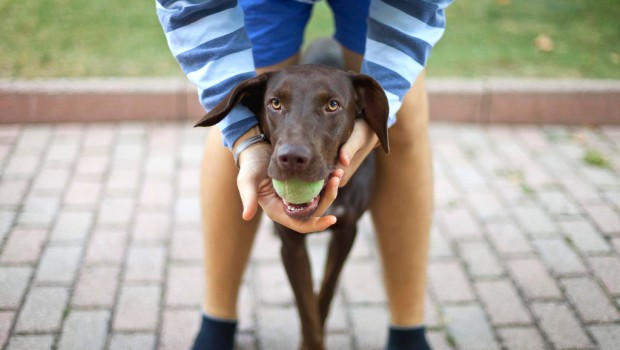What happens when your scientific study results contradict all previous research in that area?
Science can be surprising, and for Dr Lisa Collins, researcher in Animal Health and Welfare Epidemiology at the University of Lincoln, UK, that’s part of the challenge – and the fun!
Lisa’s research focuses on the development and application of mathematical and statistical methods for the study of animal health and welfare in a wide range of species.
She has recently led three research projects to investigate the welfare of kennelled dogs.
This includes a 3-year study conducted in dog rehoming centres, where the aim was to develop a tool to assess Quality of Life based on a wide range of novel and traditional welfare indicators.
Lisa has been awarded a number of prizes for her work, including the 2014 British Science Association Charles Darwin award for excellence in science communication, and the 2010 Universities Federation for Animal Welfare’s Young Animal Welfare Scientist of the Year award.
In this episode, we speak with Lisa about her work comparing the welfare physiology and behaviour of pets dogs at home and in a boarding kennel environment, with some unexpected findings.
Are dog kennels cruel? Let’s find out.
Podcast
Publications

Kiddie, J. L., & Collins, L. M. (2014). Development and validation of a quality of life assessment tool for use in kennelled dogs (Canis familiaris). Applied Animal Behaviour Science, 158, 57-68.
Part, C. E., Kiddie, J. L., Hayes, W., Mills, D., Neville, R. F., Morton, D. B., & Collins, L. M. (2014). Physiological, physical and behavioural changes in dogs (Canis familiaris) when kennelled: Testing the validity of stress parameters. Physiology & behavior, 133, 260-271.
Collins, L. M. (2012). Welfare risk assessment: the benefits and common pitfalls. Animal Welfare, 21(Supplement 1), 73-79.
Asher, L., Collins, L. M., Ortiz-Pelaez, A., Drewe, J. A., Nicol, C. J., & Pfeiffer, D. U. (2009). Recent advances in the analysis of behavioural organization and interpretation as indicators of animal welfare. Journal of the Royal Society Interface, doi:10.1098/rsif.2009.0221.
More publications by Dr. Lisa Collins via ResearchGate
Links
LinkedIn: Lisa Collins
Header image: Flickr/Jeff Hill



